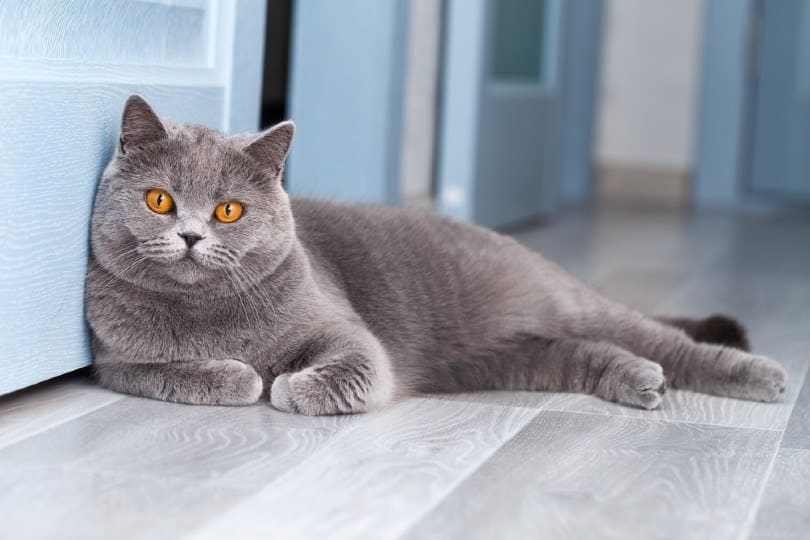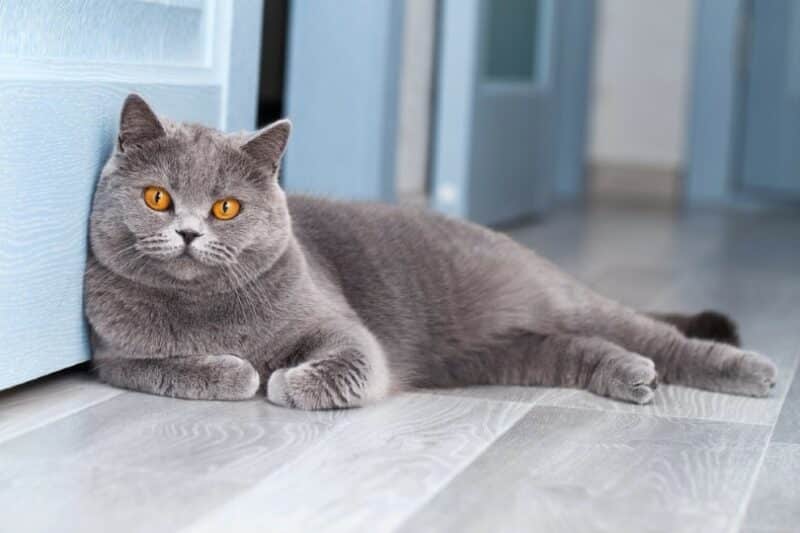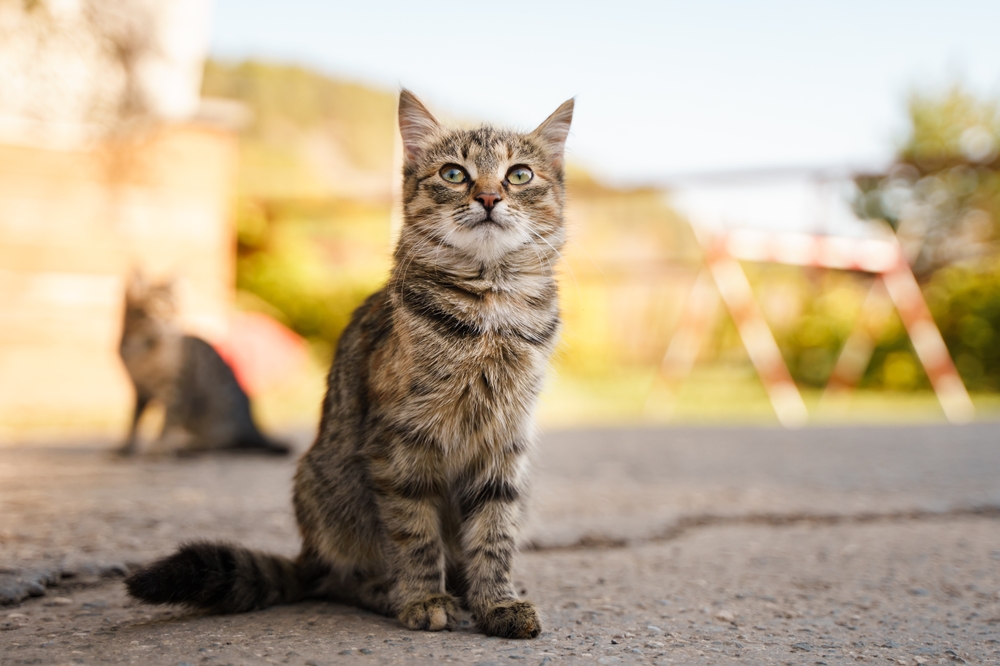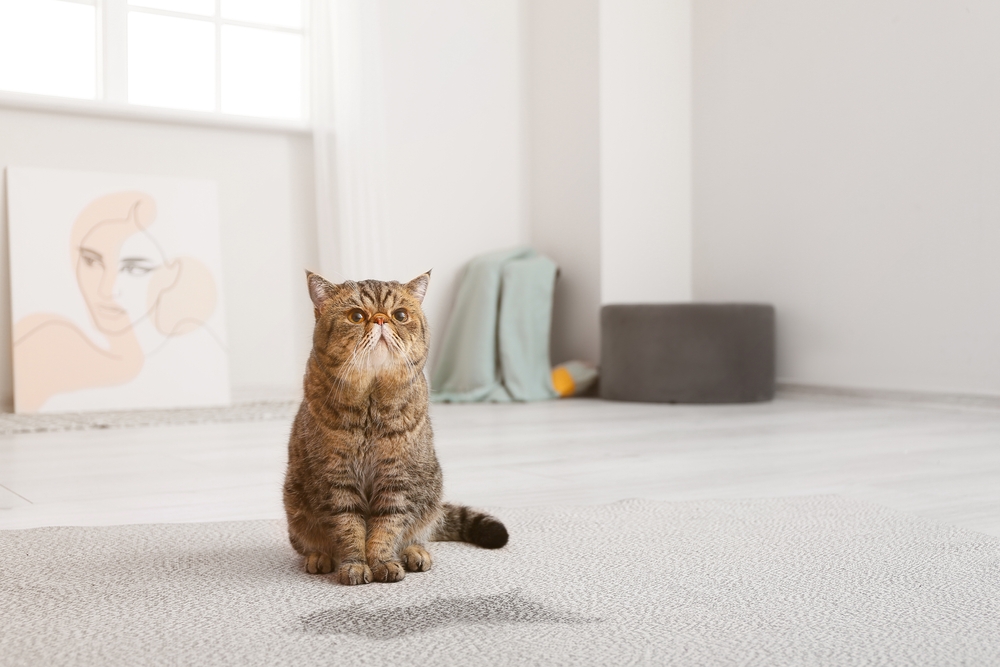Getting a new cat is always an exciting experience. You might have fallen in love with a particular breed or found a heart-breaking kitten needing rescue in the local shelter, but what next? If you’re reading this article, you’re probably wondering how much getting a cat costs in the UK or even how much they cost over a lifetime. We’ll answer those questions in this price breakdown and discuss the one-time and monthly costs of cat ownership in the United Kingdom.
Generally, you can get a cat for free, or if you decide to adopt one, it can cost approximately £50–£150, or £200–£2,000+ if you buy one from a breeder. Read on to discover how much a budget for owning a cat can look like!
Bringing Home a New Cat in the UK: One-Time Costs
Before you take the plunge and decide to get your cat, you must think about and plan for the initial outlay. These costs range from the price of the cat to any consumable supplies they’ll need from day one (such as litter) and more long-lasting supplies. Most cats in the UK will come with one-time costs, such as an adoption fee, and owners will need to buy items that will only be replaced a few times throughout the cat’s life.
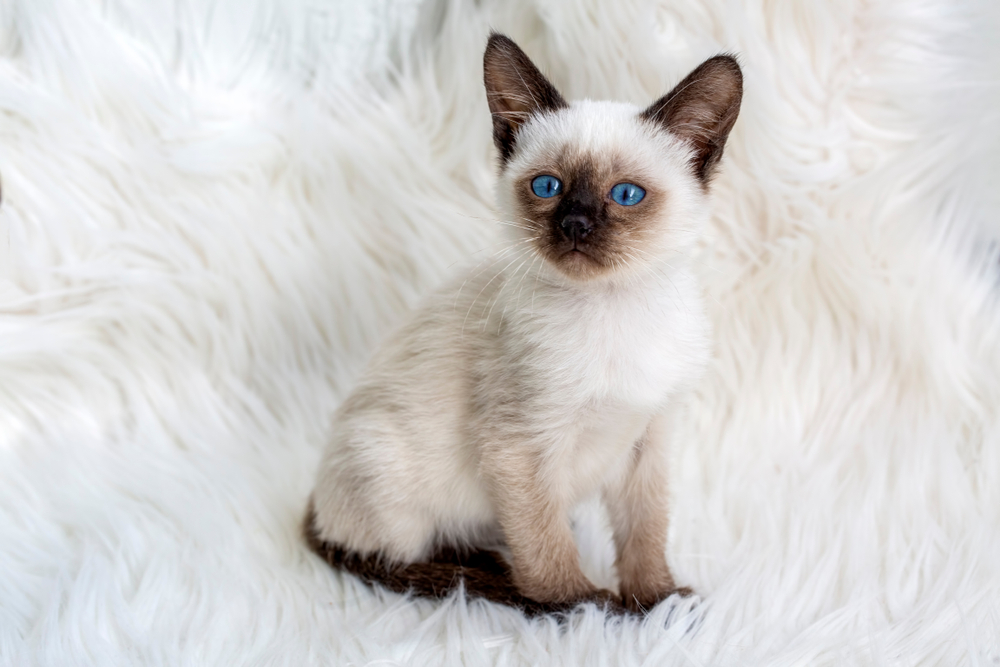
Free
In the UK, you’ll unlikely find a cat or kitten to adopt for free. Sometimes there are “free to good home” adverts that are legitimate, but if you are looking for a free cat or kitten, be wary of each advert as some are posted for unsavory reasons. Unfortunately, cats and kittens acquired for free are often cats that have been dumped by their owners when they didn’t want them anymore, or who have medical issues owners couldn’t afford (or didn’t want) to treat.
Adoption
- £50–£150
Each charity or shelter in the UK will charge a different adoption fee for their cats and kittens. Smaller charities often have the biggest variations in their adoption fees as they each have different running costs, overheads, and numbers of cats and kittens they’re currently housing.
Smaller charities might also have less backing from donations, meaning adoption costs might be higher. The larger charities and rescues, such as the RSPCA (Royal Society for the Prevention of Cruelty to Animals) and Cats Protection, are often more uniform in their adoption pricing, but the amount will still vary from location to location.
The number of cats adopted, the age of the cat (kitten vs. geriatric, for example), and any conditions the cat has will all affect the adoption price, with kittens costing more to adopt than elderly cats. In addition, most cats adopted from shelters are microchipped, vaccinated, and neutered before leaving for their new home, which also affects the adoption price.
Breeder
- £200–£2,000+
The price of a kitten from a breeder varies by significant amounts depending on the breed and age of the kitten. Some “backyard” or unreputable breeders can churn kittens out for a lower price. However, they’re often unhealthy and lack essential socialization, making them difficult to handle as pets. The cheapest kittens found in the UK from breeders are often Domestic Shorthairs, which are the most common “breed” in the UK. These mixed breed cats are called “Moggies” and usually go for £300 or less per kitten.
The most desirable breeds, such as Persians and Maine Coons, can cost more than £1,000 per kitten if they have a good pedigree, and exotic or hybrid cats like Savannah and Toyger cats can cost considerably more!
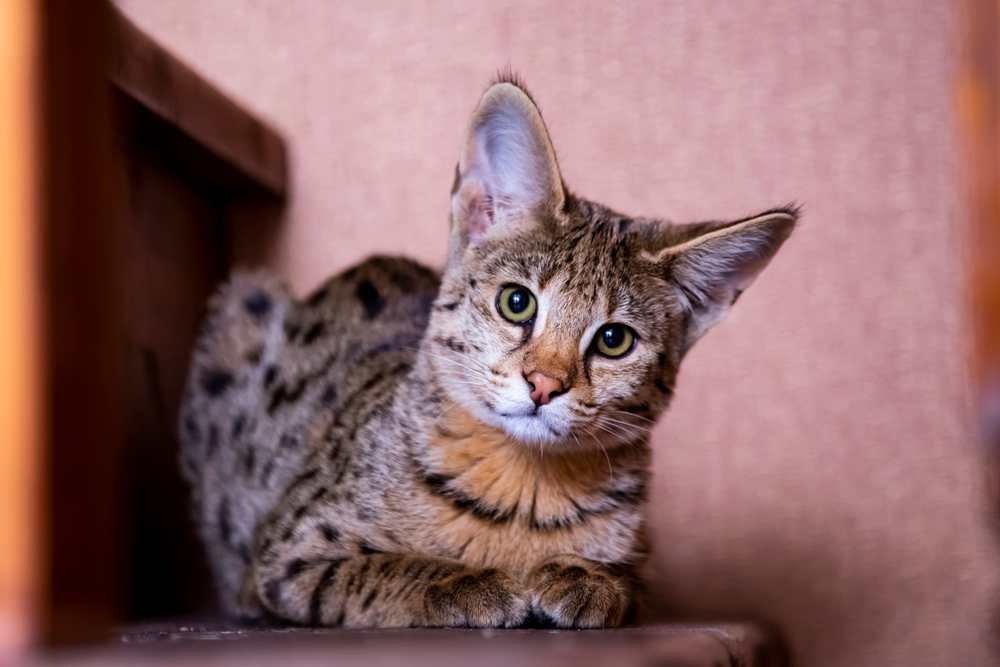
Initial Setup and Supplies
- £425– £995
Your new cat will need several items before they arrive at your home. These costs can vary due to the quality and location they’re bought in, but most items have a broad price range across the UK. Initial setup and supplies consist of necessary, functional products such as cat flaps, bowls, litter trays, and comfort items like cat beds. Most of these should be bought new for your cat, but some can be found for a lower price second-hand (such as cat flaps).
List of Cat in the UK Care Supplies and Costs
How much a cat costs in the UK per month depends on the amount and quality of the consumables the cat uses, such as the type and quality of food, their health care needs (some of which can vary considerably breed-to-breed), and their grooming needs. Typically, a cat in the UK will cost around £120 per month, including preventative veterinary treatments and new toys and enrichment to keep them happy. However, some pampered cats might get top-of-the-line toys and consumables, which puts their monthly costs towards the higher end. Monthly health care costs for cats in the UK usually consist of preventative parasite treatments and any supplementary treatments your cat needs. Flea and tick prevention pipettes are used monthly and are either prescribed by a vet or bought over the counter. The prices will depend on the brand, but they usually cost around £10 per pipette. Any health conditions the cat suffers from will inflate the monthly health care price, such as if they need medication for diabetes, for example. Supplementary add-ons are more common in older cats, but many are given supplements such as fish oil or chondroitin to help protect their joints as they age, costing around £30 per month. The cost of a cat’s food in the UK will vary depending on the type and quality of food they eat. Dry food mixes typically cost less than wet foods, and there is a wide variety of options for both, including freeze-dried raw, home-cooked, and generic formulations. Store-bought dry food mixes developed and sold by the store brand often cost the least, but they’re still complete foods. A box of dry food that lasts a week will come in at around £5 for a cat of average weight. On the other end of the scale, personalized and tailored food formulations that are subscription-based can cost more than £70 a month for wet food alone. Allergies or medical conditions that need specific dietary changes can also increase the price of cat food, such as hypoallergenic food for cats with food allergies. The price of grooming per month will vary depending on a cat’s individual grooming needs. A typical Domestic Shorthair will only need a quick groom once a week at home (if tolerated), and most cats don’t need regular bathing as they are proficient self-groomers. Long-haired cats might need more regular grooming with specific tools. Breeds that need daily grooming to prevent matting will need additional grooming tools. These breeds are often bathed in preparation for shows, and some will be sent to the groomers once a month for a clip on top of home grooming, increasing the monthly cost. Most cats will need semi-annual vet visits to get prescription parasite treatment and a general health check, which will cost around £50 per visit. However, if a cat has health problems that require medication or adjustment (like diabetes), this cost can easily be more than £150 per month. A typical veterinary consult for a cat in the UK is between £35 and £65 depending on geographical area, and the medications a cat needs will depend on its medical condition. Some common medical conditions cats can suffer from and their costs in the UK are as follows: Pet insurance in the UK is cheaper for cats than dogs, but the monthly premium depends on the age and breed of the cat, as well as where it lives and any medical conditions it already has. The level of coverage and any add-ons are also factored into the price, with basic plans costing as little as £5 per month for younger cats and the highest coverage for older cats exceeding £40. We looked at some quotes for cats of different ages and breeds in the UK for lifetime coverage and compared them below. The environmental maintenance needed for a cat usually consists of a litter box and litter liners, cardboard scratchers (in addition to scratching trees), and stress reduction. Stress-reducing pheromones can come in a few forms and are most commonly sold in sprays or liquid diffusers that release calming pheromones into the environment. Pheromones are useful for reducing stress in multi-cat households and helping cats through stressful situations like moving home. The costs of these and other environmental maintenance items depend on the quality and type (particularly for cat litter). Toys are an essential part of cat care, as they provide enrichment and stimulation, which keep pet cats healthy and happy. Different types of entertainment can cost varying amounts, but most toys need to be rotated monthly to keep things interesting for your cat. There are subscription boxes that send toys, games, and treats to owners’ homes monthly; these subscriptions usually cost around £25 a month for the lowest tiers. More high-tech entertainment options are now available, with the purchase costs of laser toys or treat dispensers and interactive toys adding to monthly subscription costs. These can easily reach the £100-per-month mark combined with traditional toy costs! The total monthly cost of owning a cat in the UK can be as little as £70 a month, but the average cost is around £150 per month. For cats with additional health needs, those with particular tastes in litter and food or owners who want premium items for their pets, the monthly costs can exceed £250 when factoring every element in. The highest additional cost to consider when working out how much cat ownership costs in the UK is the price of emergency veterinary treatment. An emergency visit will commonly set cat owners back at least £200 without insurance. Other expenses to consider include cat sitting or boarding in a cattery if you need to go away. Cat sitting in the home usually costs less, with the daily price averaging around £20. It costs more to leave your cat in a cattery, but this is often needed if you’re away for an extended stay or your cat has additional needs. One-off sessions at a grooming salon might also be needed, particularly for long-haired cats. Many cats struggle with self-grooming when they age, so grooming sessions can be an excellent way to ensure they stay clean and comfortable. Celebrations are a big part of cat ownership in the UK. Many owners celebrate birthdays and Christmas with their cats, so presents (and even parties in some cases!) are another cost to consider. Some owners might have difficulty with their cat’s behavior, and enlisting the help of a professional feline behaviorist can also present an additional cost. Lastly, there might be house renovation costs to consider if your cat causes any damage to your home, particularly if you rent your property. It’s achievable to own a cat in the UK on a budget, but certain expenses will be gentler on your pocket than others. The first thing to do is create a budget and stick to it. Researching the costs (like you have done by reading this article) is crucial in anticipating how much you’ll need to set aside for your new cat. Research any particular needs of the breed and prepare for any potential settling-in issues, such as the need for a calming pheromone diffuser. Researching the best products available for your price range is another critical step, as you can keep your cat healthy and happy on even the tightest of budgets if you do your research and find the best bang for your buck. Comparison shopping is essential, particularly when getting the best deal for pet insurance. To save money on cat care, the first thing to look for is any deals on the supplies you’re planning on using. Are there food or litter deals available? Can they be bought in bulk? There are often sales of toys and other consumables that will change month to month, so keeping on top of the latest deals is an easy way to save a few pounds on cat care. Crafty owners can also make their own toys from materials found around their home (such as simple fishing toys), but make sure your cat is supervised when playing with them. Getting your cat insured is also an excellent way to save money on expensive vet bills in the future. Lastly, ensuring your cat is up to date with preventative treatments and vaccinations can save you money (and stress) by avoiding illnesses or parasite infestations. The one-time costs of owning a cat are more than you might think, but the price can be kept reasonable by searching for deals and preparing yourself before jumping in. Adoption costs are smaller for non-pedigree cats, and there are rare opportunities for getting a cat for free in the UK, but these cats often have health problems that can be costly in the future. Initial set-up costs consist of essential items (like litter trays and food bowls) as well as the consumables you’ll need both as your new cat arrives and throughout its life. Monthly costs can be kept as low as possible by comparing items and finding the best value for money, but some expenses, like pet insurance, will be at a fixed cost for your cat (or will increase during its life). Lastly, there are ways to save money on cat care in the UK by shopping for deals, buying in bulk, and being as prepared as possible for any additional costs. See Also: Featured Image Credit: FotoMirta, Shutterstock
Cat Bed
£10–£20
Spay/Neuter
£40–£120
X-Ray Cost
£150–£350
Ultrasound Cost
£90–£200
Microchip
£10–£30
Cat Litter
£5–£20
Cat Food
£10–£50
Grooming Tools
£10–£20
Scratching Posts/Trees
£30–£60+
Litter Box
£10–£25
Litter Scoop
£10
Toys
£20–£40
Carrier
£30
Food and Water Bowls
£10–£20
How Much Does a Cat in the UK Cost Per Month?
Health Care
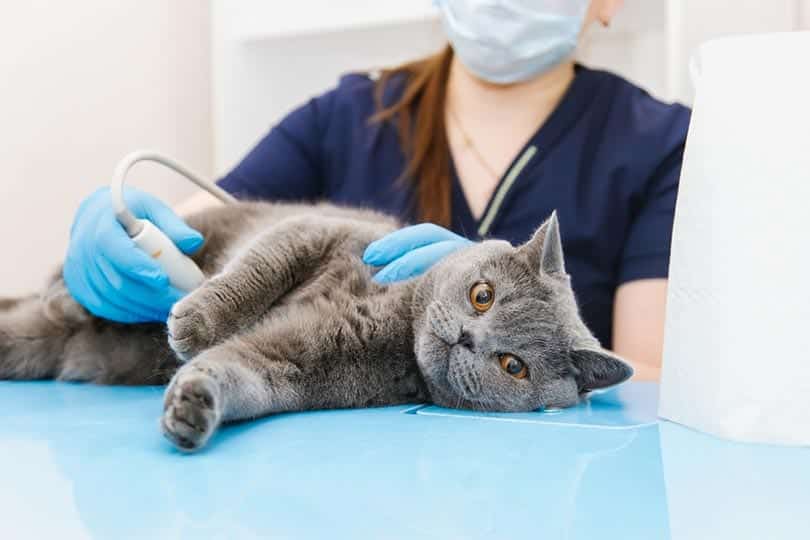
Food
Grooming
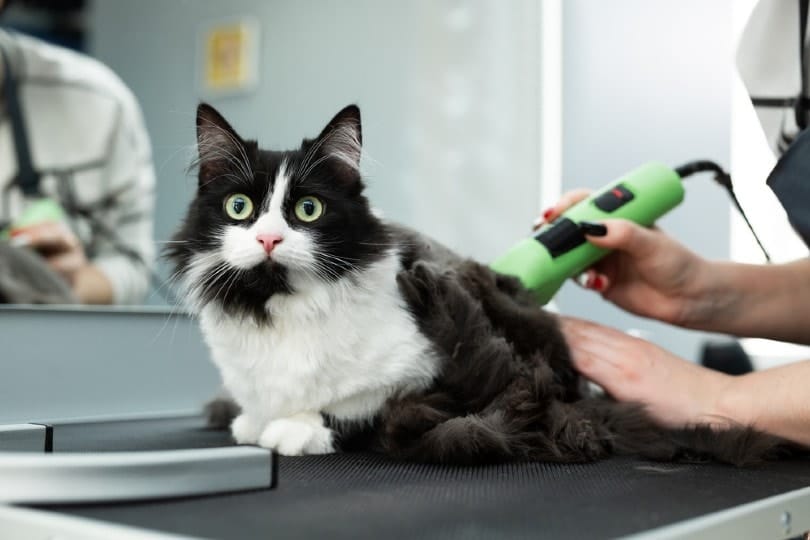
Medications and Vet Visits
Pet Insurance
Environment Maintenance
Litter box liners
£5/month
Litter
£5–£20/month
Cardboard Scratchers
£10/month
Pheromone Diffusers
£20–£30/month
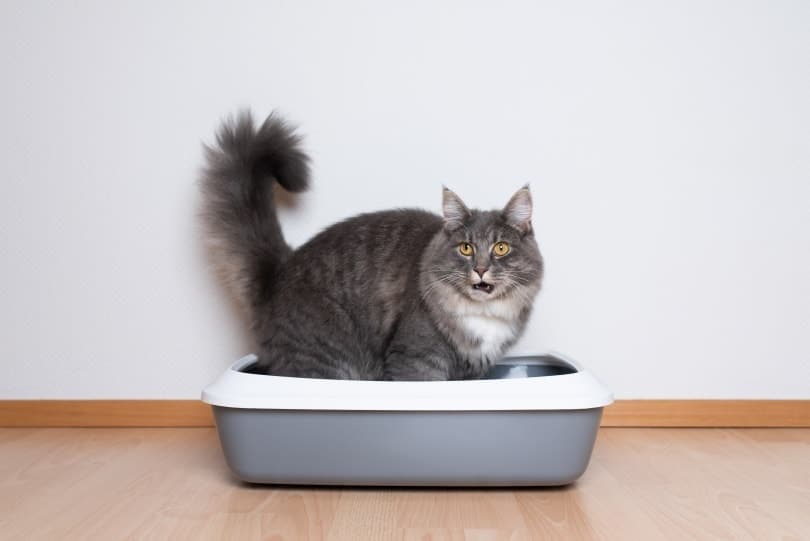
Entertainment
Total Monthly Cost of Owning a Cat in the UK
Additional Costs to Factor In
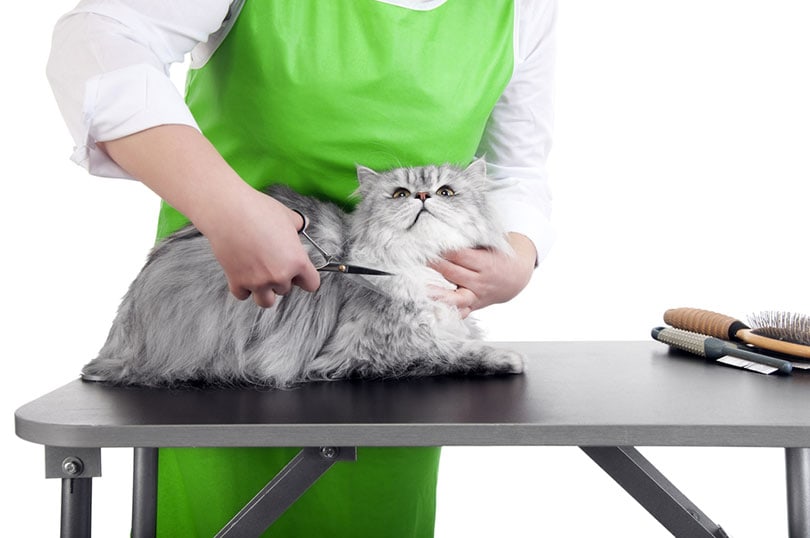
Owning a Cat in the UK on a Budget
Saving Money on Cat in the UK Care
Conclusion

